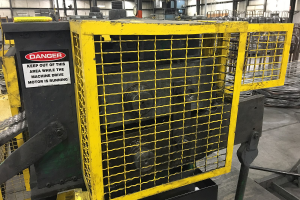Appeals court lowers bar for OSHA willful violations
Recent decisions from the 7th U.S. Circuit Court Appeals — which covers Illinois, Indiana, and Wisconsin — have lowered the burden of proof required for OSHA willful violations.
In one case, involving Dukane Precast, an employee who was cleaning the sides of an auger became trapped when the sand beneath him gave way. A plant manager who was called to the scene saw that co-workers were helping the trapped man and did not call 911 because he assumed there was no immediate danger. The employee was stuck for more than five hours, and OSHA issued a willful violation of its permit-required confined space standard.
The company appealed, but the court upheld the violation, saying that for willful violations, OSHA need only prove that the employer “was aware of the risk, knew that it was serious, and knew that [it] could take effective measures to avoid [the risk], but did not.”
Previously, to issue willful violations, OSHA had to prove that the employer showed “intentional disregard or plain indifference” to a violation, OSHA now need only prove that the employer failed to act.
In another case, the court upheld a decision by the Occupational Safety and Health Review Commission to impose a willful violation against Stark Excavating for not ensuring adequate protection against a trench cave-in.
The company acknowledged that one of its trenches was not properly sloped, but said it should not have received a willful violation because it had safety rules in place to ensure that employees were protected from cave-ins, its employees were adequately trained in those requirements, and it conducted regular inspections and otherwise ensured compliance with those rules.
However, the court said that was not enough, in light of the fact that a supervisor observed the improperly sloped trench and did take steps to correct it.
Willful violations can result in a penalty of $70,000, which is 10 times the maximum penalty for a serious violation.


